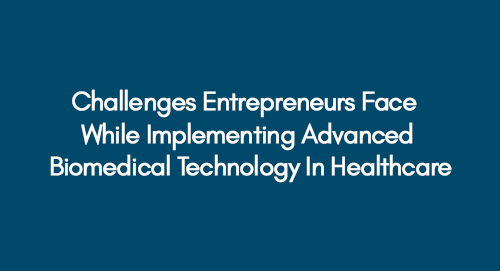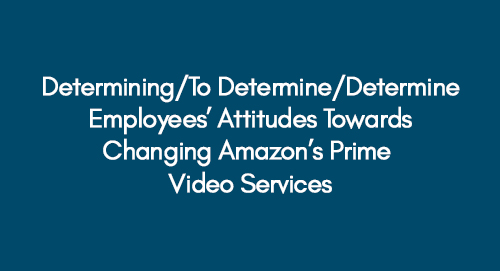
The Impact of Social Media Marketing on Consumer Buying Behaviour – A Case Study of M&S, UK
June 1, 2022
The Impact of Environmental Legacies of Geopolitics on Climate Change of Berlin
June 2, 2022LITERATURE REVIEW
 Download PDF File
Download PDF File
Entrepreneurs trying to use fancy medical technology in UK healthcare face big challenges. They need to deal with problems to make it work. Take a look at what others have written in their research about the challenges faced by entrepreneurs trying to bring advanced medical technology into the UK healthcare system.
Introduction
Technological advances have highly influenced the Healthcare sector in recent years. People from different professions develop efficient systems for better health facilities (Wilden et al., 2018, p. 51). People face specific problems while bringing these biomedical technologies for public use. This literature review shall start with analyzing entrepreneurs in healthcare, and then the innovative technologies being used in this sector will be studied. This will be followed by the challenges faced in implementing such advanced procedures in healthcare and the relevant theoretical framework in the area. Finally, the chapter summary shall conclude this chapter.
Theoretical Framework
The introduction of advanced biomedical equipment has received a mixed response from professionals in this field and the public. Hospitals find it difficult to adopt such technologies because they have to shift their systems entirely to welcome the new tools.
Significant Learning Experience in Healthcare
In Norway, the adoption of telehealth consultations was less than 1% despite high encouragement from the state towards it (Greenhalgh et al., 2017, p. 156). According to Walia et al. (2019, p. 1238), there are several barriers to implementing new technologies in health centres because the corresponding laws must be observed. Moreover, the high complexity of inventions naturally makes them tough to use in common facilities. One cannot guarantee the correct working of a device unless it is tested hundreds of times, and in the case of health equipment, the quality assurance has to be greater than usual. Consequently, the biomedical technology invented today must wait years before it reaches widespread use (Setiawan, 2019, p. 847). This gap in the time frame then introduces more inventions, so there is always a need for upscale health facilities worldwide.
Entrepreneurs in Healthcare
In the study of Salminen et al. (2014, p.456), entrepreneurship is a relatively old concept regarding healthcare. There was important work done during World War II by individuals who came to the rescue of injured people. The motivation to serve humanity is an underlying reason why many people wish to enter this field. However, the subdued pace of innovation in healthcare is attributed to the global market in healthcare (Naughton and Foss, 2019, p. 55-64). Financial factors cause a significant hindrance to advanced biomedical technologies being used in widespread health facilities. Some individuals have developed electronic health services independently, but they cannot be considered effective in every region of the world.
Innovative Technologies in Healthcare
Thongpravati et al. (2016, p.1222) highlight that Information and Communication Technologies (ICTs) have been used in healthcare and have been observed to have massive potential in several domains in the area. From conventional administrative work to highly advanced surgical treatments, advanced biomedical technologies can make this sector more efficient. The development of electronic healthcare platforms has enabled users to access doctors' services anywhere in the world. Modern applications can monitor heart rate, blood pressure, sugar level, and many other things essential for a routine health check-up (Thongpravati et al., 2016, p. 1222). The recent development in the Internet of Things (IoT) and Artificial Intelligence (AI) are still finding their way into the health sector on a large scale (Aceto et al., 2018, p. 125). However, the use of advanced biomedical machines for treatment and microelectronic devices such as sensors and implanted devices used in surgery is widely used worldwide. The vast number of intelligent devices allows a non-medical person to check and diagnose most healthcare-related problems, which is a significant indicator of the level of innovation in this profession (Batterham et al., 2016, p. 4).
Challenges in Implementing Advanced Biomedical Technologies in Healthcare
Adopting advanced biomedical technologies, as explored in the research by Wharton et al. (2017, p. 367), presents multifaceted challenges for widespread implementation. Patients' health sensitivity and aversion to perceived risks, coupled with a lack of trust in autonomous systems devoid of human oversight, form significant barriers to acceptance. Additionally, the substantial costs associated with advanced healthcare machinery create disparities in accessibility across regions, driven by factors like maintenance, trained personnel availability, resource constraints, and societal pressures (Davenport et al., 2018, p. 259). In Eastern countries, high treatment expenses often hinder hospitals from acquiring and utilizing cutting-edge medical equipment due to affordability concerns. Furthermore, the introduction of novel biomedical tools faces resistance as individuals demand real-world proof of successful patient outcomes, a challenge amplified by their recent introduction (Greenhalgh et al., 2017, p. 367).
Chapter Summary
The challenges in implementing modern biomedical systems in the healthcare sector are highly varied and complex. While the potential benefit of such tools cannot be ignored, their utilization is still a question mark for many countries worldwide. People are unwilling to spend a fortune on their treatments even if they have the resources because several new technologies have not been tested. In this review, the researcher has studied the entrepreneurs in this profession, the range of innovative technologies being used, the challenges in their implementation, and the theoretical framework related to this study. All of the data is taken from resources that lie in the past six years to keep the analysis up to date.
CHAPTER 3: METHODS
From the developed research objectives, it can be easily identified that the research philosophy of positivism can help explore different challenges experienced by the healthcare sector's entrepreneurs in implementing advanced biomedical technologies. Moreover, the positivist research philosophy helped the researchers deduce the solutions for overcoming the experienced challenges by the healthcare entrepreneurs of the UK. Further, the researchers used the qualitative method of research so that the study may find a descriptive perception of participants related to the research topic. Moreover, the researchers used the primary data collection method.
This primary data collection technique is an interview conducted with six participants, including three entrepreneurs and three employees working at medical healthcare who own their healthcare institute or are affiliated with any other major healthcare banner. The data was collected through interviews where the themes would be made according to the participants' responses. This type of analysis helped the researcher conduct a thematic analysis based on the brief perception of participants on the phenomena. Contrarily, thematic analysis of the collected data enabled the researchers to identify the brief perception of the challenges faced by healthcare entrepreneurs in implementing bio-medical technologies in general healthcare practices. The time horizon for the selected research was based on the longitudinal time horizon, so the study can remain valid for future researchers who plan to research the same topic in the future time.
CHAPTER 4: ANALYSIS OF FINDINGS
Discover the examination and results of the study mentioned.
Thematic Analysis
Thematic analysis helps us understand the important themes in the role of entrepreneurs in promoting advanced biomedical technology in healthcare.
Role of Entrepreneur in Encouraging the Use of Advanced Biomedical Technology in the Medical Sector
Entrepreneurs are the ones who see the capacity for investment or future growth in any industry. In terms of medical sectors, entrepreneurs represent innovation, as they bring innovative ideas in front of top management to utilize competencies and resources for taking the organization towards growth (Naughton and Foss, 2019, pp. 55-64). Certain no of the statements from an entrepreneur indicated that:
“I have been an entrepreneur for around eight years; I solely bring creativity to the healthcare sector via investing in modern technology. My particular focus has been biomedical technology, as this technology plays a prominent role in minimizing the operational cost of healthcare institutions. It minimizes the pressure from patients related to their cost of healthcare, which gives me satisfaction. Then, medical institutions incur a low cost, which leads to profitability, and biomedical technology, such as laser surgery and prosthetics, improves the treatment quality, attracting more patients, which also results in more profit. I try my best to persuade the usage of advanced biomedical technology at healthcare institutions via investing in them to improve healthcare quality”.
Explore Healthcare Case Study Examples
By analyzing the above statement, it can be evaluated that entrepreneurs invest in advanced biomedical technology to improve healthcare quality and bring innovation to the treatment process to attract patients. Moreover, applying advanced biomedical technology increases the profitability of healthcare institutions by reducing operational costs.
Role of Employees Working at Medical Institutions in Promoting the Usage of Advanced Biomedical Technology
According to the study by Aceto et al. (2018, p. 125) in literature, the employee working at a healthcare institution aims to improve healthcare quality by suggesting the usage of advanced biomedical technology. However, one of the themes indicated that:
“As an employee, I believe using advanced biomedical technology brings preciseness to the treatment process. From my experience, there is considerable surgery that humans cannot perform, but with the use of robotic surgery, those surgeries have now become possible. Thus, as an employee, I ensure that these technologies are employed in our healthcare institution to make the impossible treatments possible”.
By analyzing the above statement, it can be evaluated that the employee works to improve the medical treatment process by recommending the use of advanced biomedical technology for critical surgeries.
Current Status Regarding the Usage of Advanced Biomedical Technology in Healthcare Institutions in the UK
Integrating technology with medicine brings convenience to the lives of patients and healthcare professionals. One of the studies in the literature highlighted that biomedical technology allows healthcare professionals to do robotic surgery without their presence at a hospital and makes minimally invasive procedures safe. However, an employee working at one of the healthcare institutions in the UK said that:
“Currently, our hospital is initiating robotic surgeries that result in less scarring and minimization of recovery time for the patients. Also, with the help of biomedical technology, our hospital can diagnose the disease on a cellular level that can be managed by producing antibodies. Moreover, vaccines have been made to treat diseases like malaria, polio, and MMR.
By examining the above response, it has been found that UK medical institutions are currently using robotic surgery via the utilization of advanced biomedical technology. Furthermore, the orthopaedic internal fixation device is being used to repair broken bones without the presence of a human surgeon.
Challenges Experienced by Employees and Entrepreneurs of the UK in Employing Advanced Biomedical Technology in the Healthcare Sector
The prominent challenge entrepreneurs face in the UK in encouraging the use of advanced biomedical technology in the healthcare sector is the government's involvement and lack of funding (Wherton et al. 2017, p. 368). Additionally, the study by Greenhalgh et al. (2017, p. 369) regarded that employees tend to face difficulty using advanced biomedical technology, which stops healthcare institutions from utilizing advanced biomedical technology. Although, one of the respondents stated:
“One of the issues that I always encounter is lack of accessibility in research and development of biomedical technology. I, as an entrepreneur believes, that biomedical technology would replace the service of humans and substantially increase the quality of healthcare. However, research on these technologies demands extensive investment that does not provide profit. Hence, huge entrepreneurs prevent investing in such projects.”
Adult Community Nursing: Public Health in Action
By analyzing the above statement, it has been interpreted that lack of accessibility minimizes the drive of entrepreneurs to invest in this biomedical technology. Moreover, the limited accessibility limits employees in learning the implications of such biomedical technology.
CHAPTER 5: DISCUSSION AND CONCLUSION
Explore the conversation and final thoughts of the study in question.
Discussion
The results indicated that entrepreneurs and employees play an essential role in promoting the use of biomedical technology in the healthcare sector of the UK. The research explores the challenges entrepreneurs face in healthcare for delivering and using bio-medical technologies in their healthcare centres. This is because every challenge faced by healthcare entrepreneurs differs from one another. Gordon and Catalini (2018) have identified that by using biomedical technologies in the healthcare sector, entrepreneurs can easily access big data analytics for their patients and quickly develop good healthcare practices supportive of potential growth. It was also discussed by Qi et al. (2017) mentioned that the challenges of using bio-medical technologies can be mitigated when entrepreneurs start their business operations after consulting the proper regulating authorities and the right technology vendors. This consultancy practice can familiarise entrepreneurs with the working of bio-medical technologies that benefit their business after being successfully implemented.
Review Challenges in Medical Lab Accreditation Example
It was also discussed by Ok et al. (2015) that the determination of drug usage for the patients with the bio-medical technology data would ease the functions of entrepreneurs in running their healthcare institutes. This is because the data of the patients and other physician credentials will be safeguarded from theft through an effective electronic security system. The use challenge of the increase in business costs can be removed when entrepreneurs think about the successful long-term operations of their healthcare institute.
Conclusion
The current research can be concluded easily by acknowledging that every entrepreneur in the healthcare industry experiences different challenges in using bio-medical technologies to support their operations effectively. It was discussed in the literature that many studies provide benefits of using biomedical technologies in the healthcare sector. Still, they fail to explain how to mitigate the experienced challenges by entrepreneurs. The current research uses the positivist research philosophy that helps the recent study collect the primary data through interviews and develop the research results using thematic analysis.
The developed results explain that every challenge of implementing bio-medical technology in healthcare is essential for finding a remedy not only for patients but also for the wellbeing of employees. This is because there is no significant relationship between the challenges discussed, so the remedies must be developed with the establishment of workable strategies. In the discussion part, it was discussed that entrepreneurs should make effective strategies for implementing the technologies so that the level of impact received from challenges can be minimized effectively. It was further discussed that the entrepreneurs should have met the technology development authorities and the previous members of the healthcare sector to identify the right way to avoid the challenges while implementing the bio-medical technologies.
REFERENCES
Aceto, G., Persico, V. and Pescapé, A., 2018. The role of Information and Communication Technologies in healthcare: taxonomies, perspectives, and challenges. Journal of Network and Computer Applications, 107, pp.125-154.
Batterham, R.W., Hawkins, M., Collins, P.A., Buchbinder, R. and Osborne, R.H., 2016. Health literacy: applying current concepts to improve health services and reduce health inequalities. Public health, 132, pp.3-12.
Campbell, F., Biggs, K., Aldiss, S.K., O'Neill, P.M., Clowes, M., McDonagh, J., While, A. and Gibson, F., 2016. Transition of care for adolescents from paediatric services to adult health services. Cochrane Database of Systematic Reviews, p. 4.
Chen, H. and Huang, X., 2018. Will Blockchain Technology Transform Healthcare and Biomedical Sciences? EC pharmacology and toxicology, 6(11), p.910.
Darwish, A., Ismail Sayed, G. and Ella Hassanien, A., 2019. The Impact of Implantable Sensors in Biomedical Technology on the Future of Healthcare Systems. Intelligent Pervasive Computing Systems for Smarter Healthcare, pp.67-89.
Foronda, C., MacWilliams, B. and McArthur, E., 2016. Interprofessional communication in healthcare: An integrative review. Nurse education in practice, 19, pp.36-40.
Gordon, W.J. and Catalini, C., 2018. Blockchain technology for healthcare: facilitating the transition to patient-driven interoperability. Computational and structural biotechnology journal, 16, pp.224-230.
Greenhalgh T, A'Court C, Shaw S., 2017. Understanding heart failure; explaining telehealth - a hermeneutic systematic review. BMC Cardiovasc Disord 14; 17(1):156
Greenhalgh, T., Wharton, J., Papoutsi, C., Lynch, J., Hughes, G., Hinder, S., Fahy, N., Procter, R. and Shaw, S., 2017. Beyond adoption: a new framework for theorizing and evaluating nonadoption, abandonment, and challenges to the scale-up, spread, and sustainability of health and care technologies. Journal of medical Internet research, 19(11), p.e367.
Iivari, M., Gomes, J.F., Pikkarainen, M., Häikiö, J. and Ylén, P., 2017, June. The digitalisation of healthcare: Use of data in policymaking. In ISPIM Innovation Symposium (p. 1). The International Society for Professional Innovation Management (ISPIM).
Kearney, C., Dunne, P. and Wales, W.J., 2020. Entrepreneurial orientation and burnout among healthcare professionals. Journal of Health Organization and Management. pp. 153-160.
Luo, J., Wu, M., Gopukumar, D. and Zhao, Y., 2016. Big data application in biomedical research and health care: a literature review. Biomedical informatics insights, 8, pp.BII-S31559.
Manogaran, G., Thota, C., Lopez, D., Vijayakumar, V., Abbas, K.M. and Sundarsekar, R., 2017. Big data knowledge system in healthcare. In the Internet of things and big data technologies for next generation healthcare (pp. 133-157). Springer, Cham.
Miller, T.W., Burton, D., Busse, C., Kraus, R.F. and Miller, T.W., 2017. Care Model Utilizing Biomedical SMART Technology. Biomedical Journal of Scientific & Technical Research, 1(3), pp.609-611.
Naughton, B. and Foss, L., 2019. Responsible innovation and commercialisation in the university context: a case study of an academic entrepreneur in digital healthcare. In Responsible Innovation in Digital Health. Edward Elgar Publishing, pp. 55-64.
Ok, Y.S., Chang, S.X., GAO, B. and Chung, H.J., 2015. SMART biochar technology—a shifting paradigm towards advanced materials and healthcare research. Environmental Technology & Innovation, 4, pp.206-209.
Ospina-Pinillos, L., Davenport, T., Iorfino, F., Tickell, A., Cross, S., Scott, E.M. and Hickie, I.B., 2018. Using new and innovative technologies to assess clinical stage in early intervention youth mental health services: an evaluation study. Journal of medical Internet research, 20(9), p.e259.
Qi, J., Yang, P., Min, G., Amft, O., Dong, F. and Xu, L., 2017. Advanced internet of things for personalised healthcare systems: A survey. Pervasive and Mobile Computing, 41, pp.132-149.
Salminen, L., Lindberg, E., Gustafsson, M.L., Heinonen, J. and Leino-Kilpi, H., 2014. Entrepreneurship education in health care education. Education Research International, 2014. p. 456
Schopman, L.M., Kalshoven, K. and Boon, C., 2017. When healthcare workers perceive high-commitment HRM, will they be motivated to continue working in healthcare? It may depend on their supervisor and intrinsic motivation. The International Journal of Human Resource Management, 28(4), pp.657-677.
Setiawan, A.W., 2019. Implementing Project-Based Learning in Biomedical Engineering Course in ITB: Opportunities and Challenges. In World Congress on Medical Physics and Biomedical Engineering 2018 (pp. 847-850). Springer, Singapore.
Thongpravati, O.N.N.I.D.A., Maritz, A. and Stoddart, P.A.U.L., 2016. Fostering entrepreneurship and innovation through a biomedical technology PhD program in Australia. International Journal of Engineering Education, 32(3), pp.1222-1235.
Walia, S., Wolfe, D., Keast, D., Ho, C., Ethans, K., Worley, S., O'Connell, C. and Hill, D., 2019. Facilitators and Barriers to Implementing an Internet Clinic for the Treatment of Pressure Injuries. Telemedicine and e-Health, 25(12), pp.1237-1243.
Wilden, R., Garbuio, M., Angeli, F. and Mascia, D. eds., 2018. Healthcare entrepreneurship. Routledge. p. 51
Appendix
Interview Questions
Question No.1: What role do you have as an entrepreneur or an employee at your healthcare institutions?
Question No.2: What challenges do you face in implementing advanced biomedical technology in your healthcare institutions?
Question No.3: What kind of advanced biomedical technology is currently being used at your healthcare
institutions?
Question No.4: How these advanced biomedical technologies are providing benefits to your healthcare
organization?
Question No.5: How do you think you can counter the restrictions being imposed on employing advanced
biomedical technology at your healthcare institutions?
Question No.6: Do you think your healthcare institution would drive toward growth in the future by employing
advanced biomedical technology?
Get 3+ Free Dissertation Topics within 24 hours?





 Download PDF File
Download PDF File







